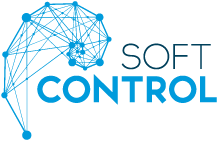Spajalica 2015
Spajalica continues with the current cultural practice of reactivating public and urban spaces, focusing on people’s vulnerable position in socio-economic currents. It reflects on people’s dilemmas about the future, which could be brightened by a conscious redirection of individuals’ needs and desires.
As in the previous years, Spajalica relates to our struggle with the rapid changes and elimination of public space from common horizons and it addresses the issue of idleness, which has been labeled lately as undesirable, inefficient and lazy behavior.The repertoire includes exhibitions, art interventions and workshops, by the following artists: ARCHIsquad, Lara Badurina, Filip Cenek,Laura Llaneli, Miron Milić, Damir Žižić and Kristian Kožul.
Rijeka’s main promenade will temporarily receive a new sculpture – Inflatable Realities (Žižić/Kožul), while the atrium of Mali salon gallery and Radio Rijeka will get a modular living room (ARCHIsquad). The windows of Mali salon will become new icons of light (Badurina) and the ruins of Rijeka’s old town will provide a setting for street art (Milić). Rijeka’s music bands are also involved, but outside of the ambiance of clubs. Finally, a provision of a 95-year old charter that designates music as the
main governing principle will come into effect again (Laura Llaneli and Filip Cenek).
This year’s Spajalica will take place from February to April 2015, in a somewhat smaller range than before. While exploring the ways to continue with this project, we decided to tackle with the issue of rush and its effects on everyday life. The rapid flow of time, where success is measured with an IT-wise and quick feedback, with a clear message of irreversibility, is indeed astounding.  Tapping out the rhythm of accelerating changes of technology and innovation loops, neoliberalism acts as a pensée unique, as a monopolizing language of irreversibility, indebtedness and loyalty to a single way of life, instructing us to keep the pace or back out of the race. Too much democracy is seen as spoiling a good work; public sector is viewed as inert and afraid of changes1. And if we reflect on our own status, we may say that museums seem like dinosaurs
in today’s world.
The ticking synonym of our times can be found in traffic jams, in the frantic haste and mad pursuit of  deadlines and commitments, in a widespread confusion of memory and information…  Rush hour is the painful image of the super-speed that actually results in a deadlock, in an over-heated state; it ends up with deviation and black hole effects. A hole usually signifies a weak point full of emptiness and absence, a point where we lose our ground. The question is: how does this hole manifests in urban landscapes. Is hole necessarily a negative word, or it connotes a switch that leads to different views on the dominant picture? The map of this year’s Copula shows alternative gravitation forces that elude the principles of the new economy and promote deceleration, temporal dislocations, iconography of ruins, pensiveness… In this hole we may found ourselves, at least from time to time.
More info and programme:
http://www.mmsu.hr/Default.aspx?art=871&sec=2
